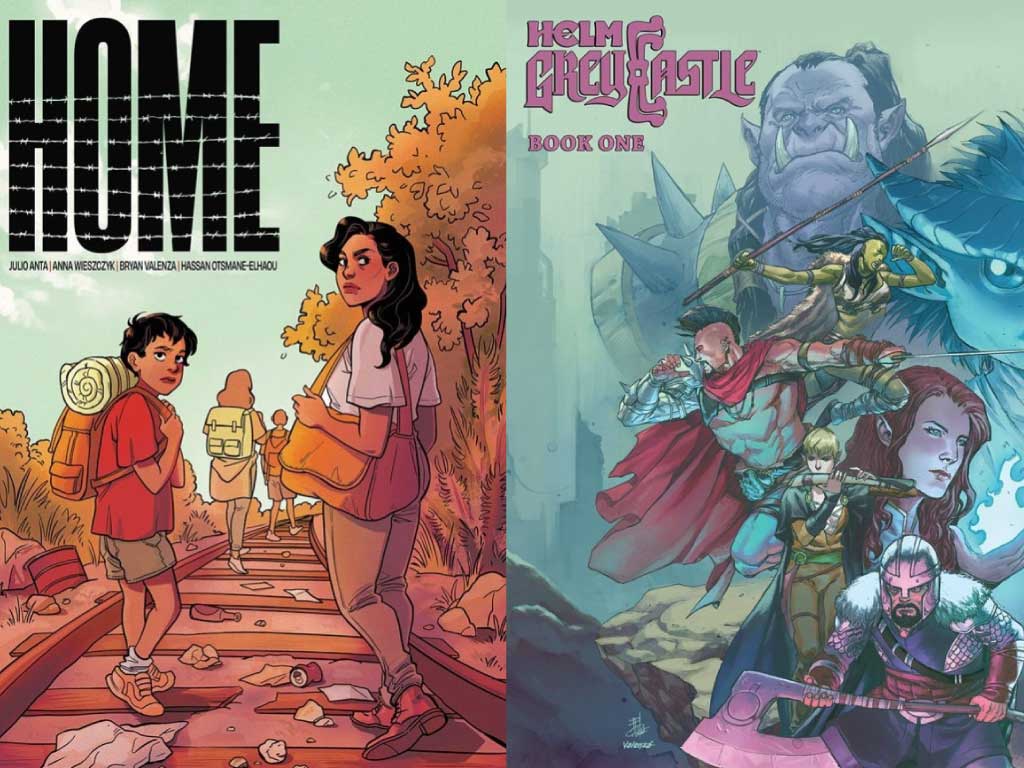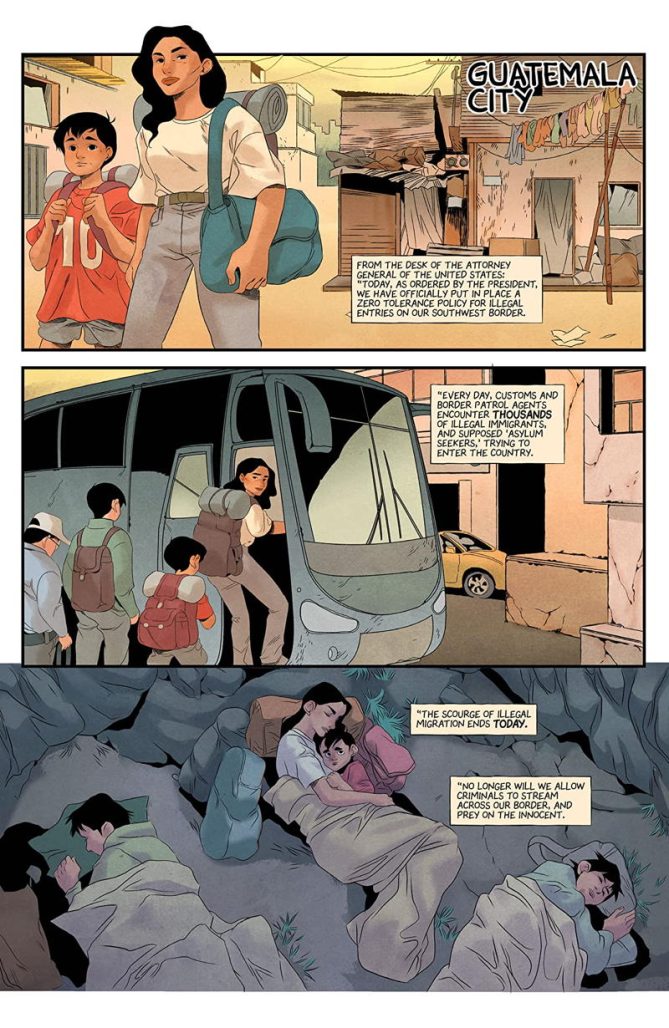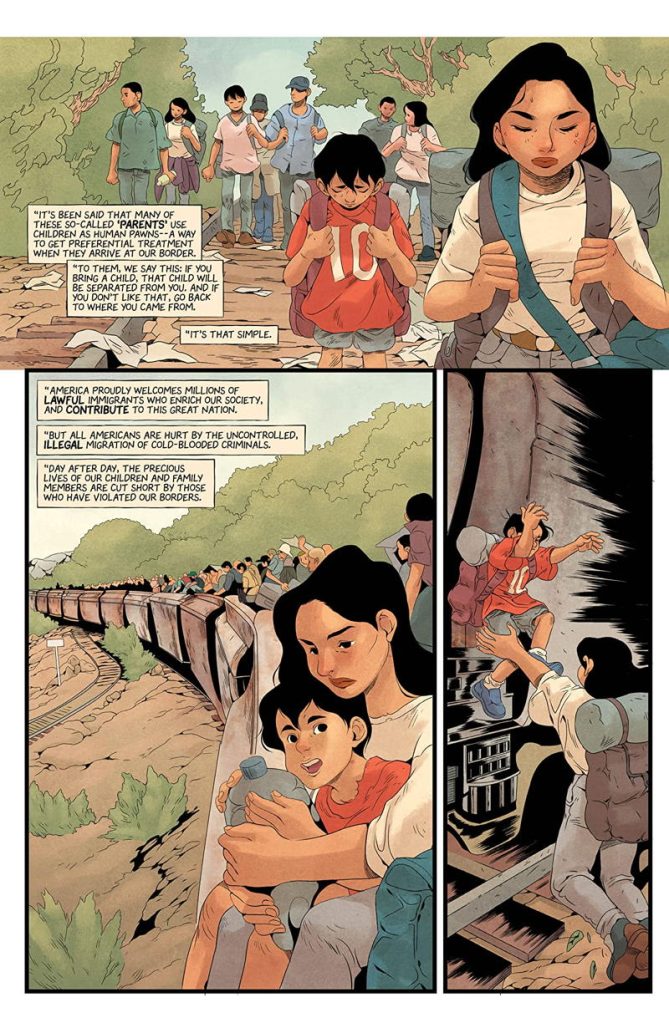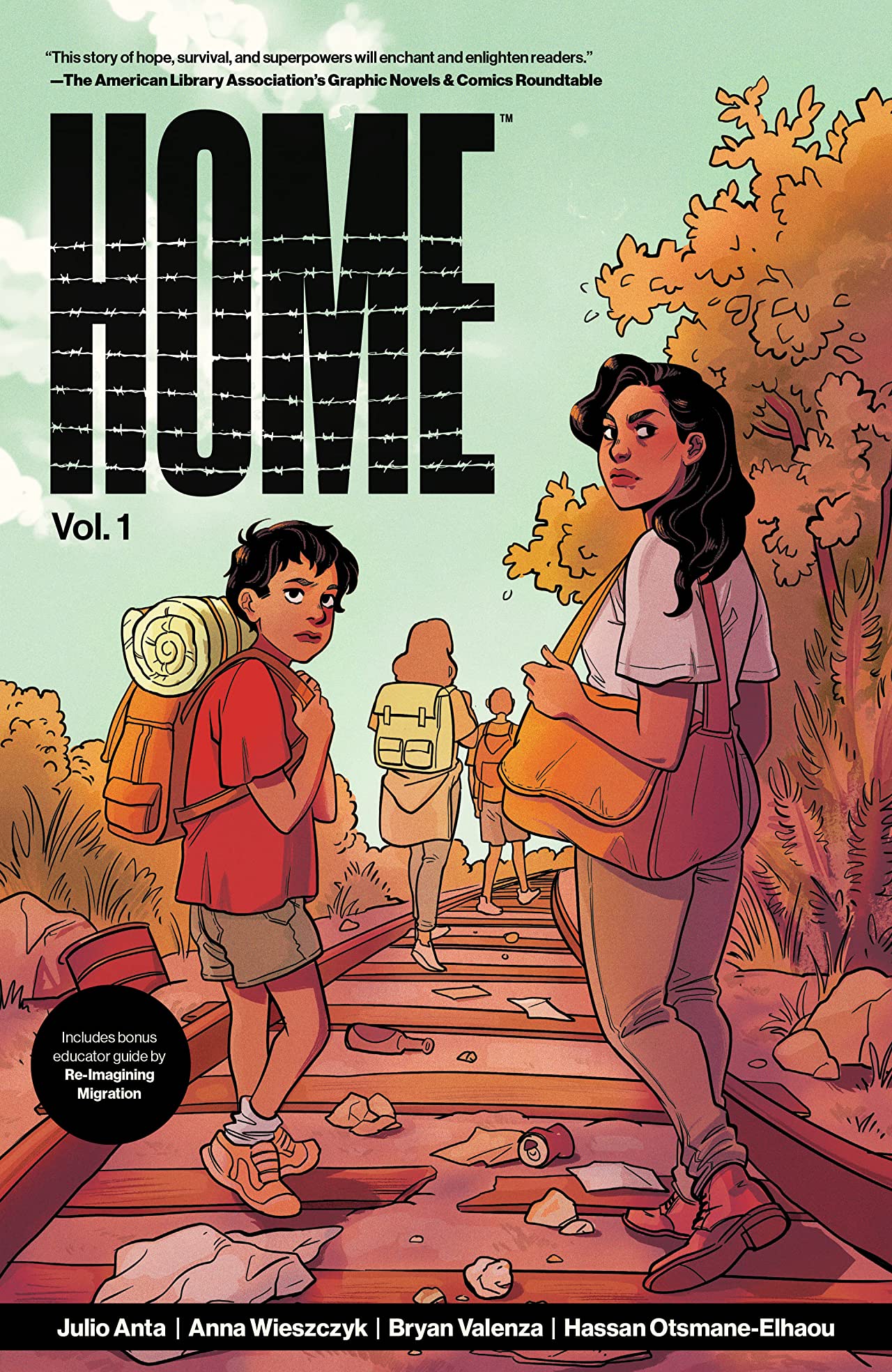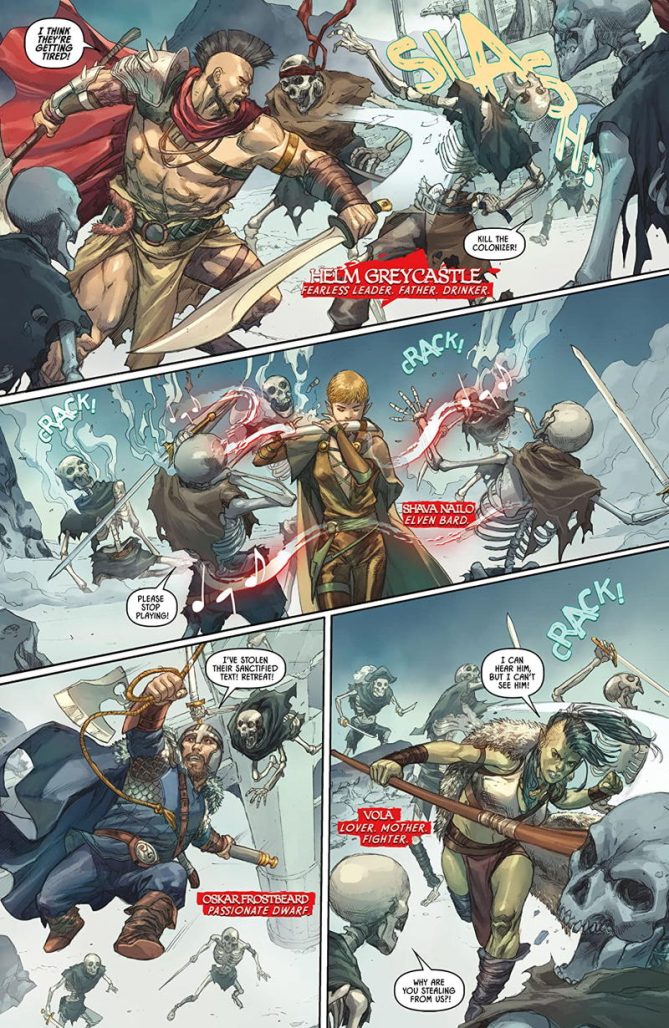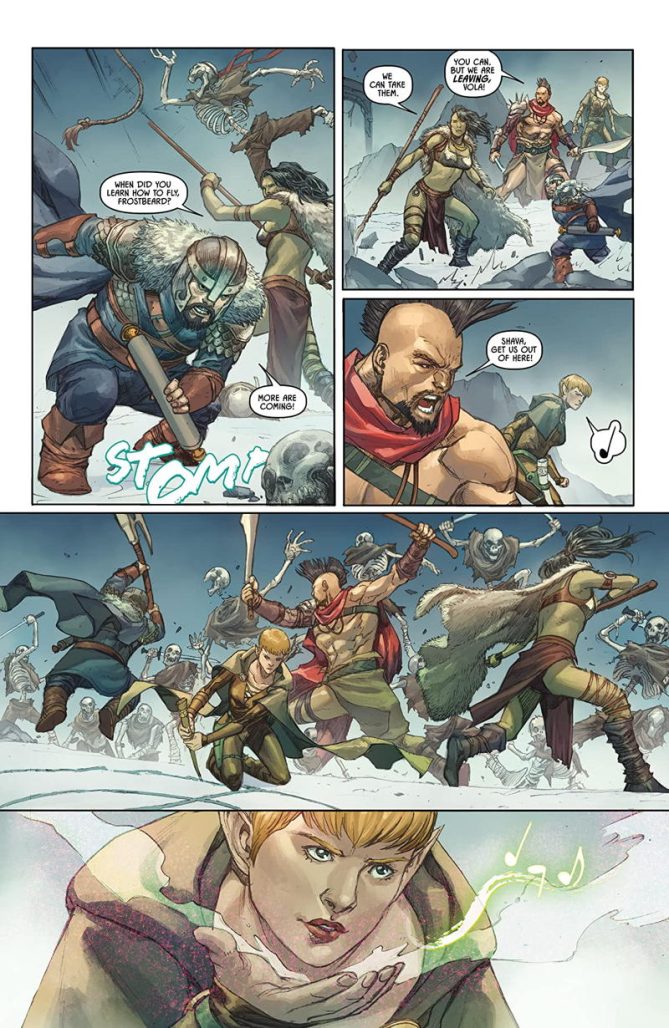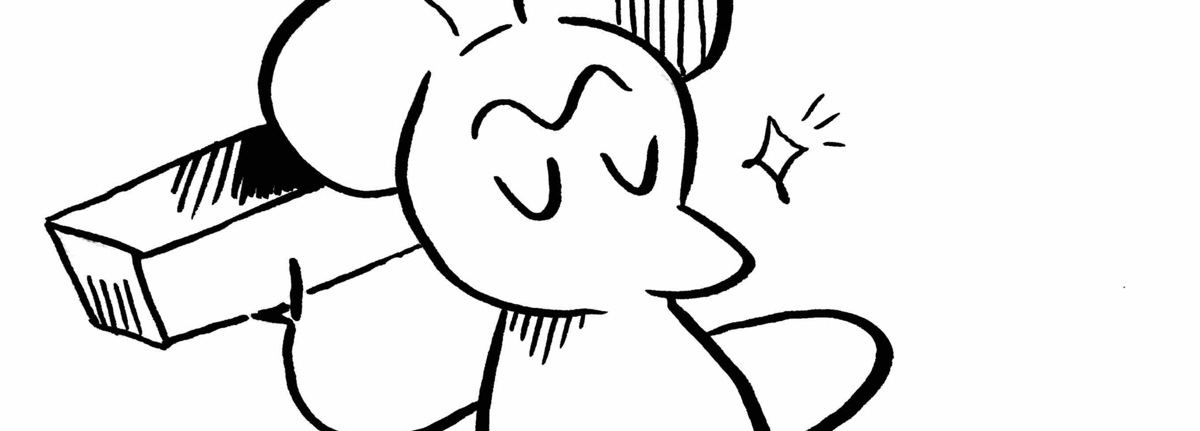Henry Barajas: I’m sure you’ve been keeping up with what’s going in the news. The horrific video and photos of the Border Patrol agents on horseback, whipping Haitian refugees trying to seek asylum. They’re fleeing with children in their arms in waist deep bodies of water.
The sad truth of comics like HOME and La Voz De M.A.Y.O. Tata Rambo are that they will be forever relevant in our lifetimes when it comes to the bloody history of migrants trying to seek safer pastures. These types of things have been happening well beyond the Trump and Biden administration.
Julio Anta: It’s been so disheartening to see those images and videos over the last few weeks. To your point though, this is the history of our country–both under Republican and Democratic administrations. No matter how they campaign, or what promises they make, every President inevitably has migrant blood on their hands.
I know it can sometimes feel like this is a new thing because we have access to photos, videos, and the internet to make things go viral, but the more we look back at our history–history which is often hidden from us–the more we find instances of state sanctioned violence against immigrants.
I sometimes find myself flirting with defeatism, and sinking into periods of despair, but then I’m reminded of the incredible strength and resilience of my immigrant family members and those currently seeking safety within our borders–however artificial they may be. If a family of refugees can wade through water while dodging these cowardly border patrol agents and their whips, then I can use my privilege to advocate for them and tell stories that force others to wrestle with our Government’s treatment of migrants.
Barajas: Did you ever stop to consider that your name and work will always be tied to this complicated conversation—and having the privilege of not having to make that deadly trip to the US?
Anta: I do. It’s a complicated dichotomy, especially for me as a Cuban and Colombian-American. My father is a Cuban refugee who came to the United States as a five year old, and my mother is the daughter of undocumented immigrants from Colombia, so there’s pieces of Juan–the protagonist of HOME–in both of my parents story, but not in my personal lived experience.
Juan is from Guatemala, born in the 2010s and arrives at the Southern Border in 2018. I was born in Miami, which as many people know is a predominantly Cuban-American city. I spent my childhood living in an environment where I mostly felt safe from the racism and xenophobia that my characters experience in HOME. Unfortunately, that’s changed as I’ve gotten older and experienced racism firsthand, but it wasn’t until I was an adult and left Miami.
But I think the most important distinction to make when talking about my privilege as a writer telling a story about a migrant boy is that I’ve never had the fear of losing my home like my characters do. I was born here, my father was the beneficiary of pro-Cuban refugee policies that gave him legal status almost instantly, and thankfully all of my formerly undocumented family members now have papers.
So far as my name forever being attached to this highly politicized conversation–I’m not too concerned with that. For me, the most important part of writing HOME was to make sure it was well researched, empathetic and authentic–or as authentic as a story about superpowers could be!
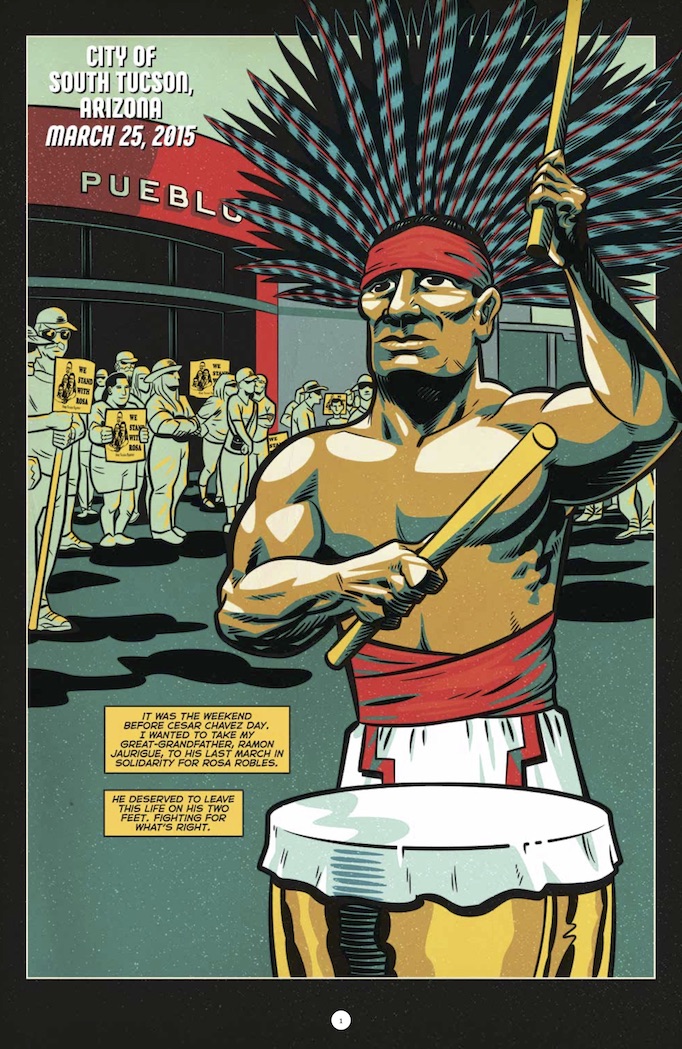
Anta: Speaking of telling these kinds of stories, I think there’s a lot of parallels between LA VOZ DE MAYO and HOME. HELM GREYCASTLE on the other hand, is totally fictional. I know a lot of research went into crafting that world, but did you find it easier to write that book since it’s a fantasy?
Barajas: While I was researching La Voz De M.A.Y.O, I found out that the Yoeme Pascua Yaquis were first documented by Spanish settlers in 1533. Even though I grew up in Old Pascua, it was jarring to find out how little I know about my past, heritage, and history. Researching for La Voz felt like I was constantly sitting next to a sand dial racing to finish before Ramon died. But doing the work for Helm Greycastle was fun and horrifying. I didn’t know how graphic, sad, and bloody the history was. But I knew that the Yaquis and Mexican governments were constantly at war, so I wanted to add that flare to the comic. Even though Helm takes place in a fictional world where the Azteca beat the Spanish, it was inevitable that the bloodshed wouldn’t stop there because historically, they were famous for conquering different regions. History always repeats itself.
I learned so much about Azteca and the various tribes that were stomped out of history. If anyone is looking to learn about the Azteca but not from white euro educators, I suggest adding The Broken Spears: The Aztec Account of the Conquest of Mexico to the reading list.
Anta: I want to assume that researching HELM was less traumatic than researching V.O.Z.–since it didn’t involve people in the present or recent past–but the history HELM pulls from involves the victims of one of the largest genocide in history.
Barajas: It must be the Aquarius in me, I love visualizing how to map it all for a comic. I know it sounds horrible and insensitive, but, researching the history and trying to make the trauma compelling in my narrative is what gets me out of bed in the morning. Studying the largest genocide in history only made more what I’m calling a “Brown Jaguar.” My people were robbed of their language, history, wealth, and culture. I hope by using the power of comics…Helm Greycastle is what I envision Azteca could’ve been. That’s the best I can do.
HOME is one of those no-brainer ideas. It’s a story you can tell forever. How far do you want to take it?
Anta: One of the guiding principles for me when writing the first arc of HOME was that even though these characters have superpowers, it’s not a superhero book. One of the main themes in HOME is survival. Unfortunately, when you’re a young superpowered migrant, there’s countless forces at every level of Government and civilian life that may pose a threat. So, I have tons of stories that could be told in that world. Stories about Juan, his cousins and the history of his family. Hopefully people enjoy it enough for us to continue!
Barajas What’s next for you? You and I are always doing “Latino/x/e/a” stuff. Do you ever just want to try to do anything but that?
Anta: Next up is a short story in Marvel’s Latinx-centered anthology MARVEL VOICES: COMUNIDADES #1 out November 10th. Then the HOME trade paperback is in comic shops November 17th. The next two projects I can talk about right now are FRONTERA a YA graphic novel from HarperAlley slated for Summer 2023. It’s a supernatural border adventure with my good friend Jacoby Salcedo. For Fall 2023 I have SI, SE PUEDE, a non-fiction graphic novel for Ten Speed Press about the Latino heroes that changed America. That book is with Yasmín Flores Montañez.
So yeah, a lot of Latinx stuff… I don’t know, it’s hard for me to be in an industry so utterly lacking in Latinx representation–both in creators and characters–and make something that doesn’t speak to that experience. I don’t fault any Latinx creators who want to write stories that don’t center around the Latinx experience, or Latinx characters, but that’s just not me. One of my favorite quotes is from Nina Simone. I’m paraphrasing, but she says an artist’s duty is to reflect the times. That’s what I’m trying to do with my work.
With all that said, writing HOME was particularly emotional for me. I was so angry about family separation, and this new level of cruelty the Administration seemed to relish in. I found myself crying while writing some of the more emotional scenes in the book, which I don’t think it particularly sustainable. You mentioned mining trauma earlier–does it ever get exhausting to you?
Barajas: I have to admit that writing about my great-grandfather caused some tension with the family. Some members became protective of him even though he lived in a trailer with no running water, gas, and poor infrastructure. The in-fighting made me question if this was the right thing to do. He knew what I was trying to do and was fully supportive, so that gave me the confidence to push through. But writing Helm Greycastle was a fun time. I love to learn despite not having gone to college and barely graduating high school. I now consider myself a ghetto Mesoamerican scholar. Since I haven’t had proper healthcare during my comic book writing years, making comics is my form of therapy. I think being able to process what I think of what’s happening on the border, disproportionate COVID-19 among Latinos, and the harsh realities of what it’s like to be a brown person in post-Trump America. It doesn’t get easier to watch the Biden administration go back on its promises to the communities that put him and other politicians in office – it’s hard to turn off and ignore. But channeling that into making comics for people like me and showing them hope refuels the empty tank.
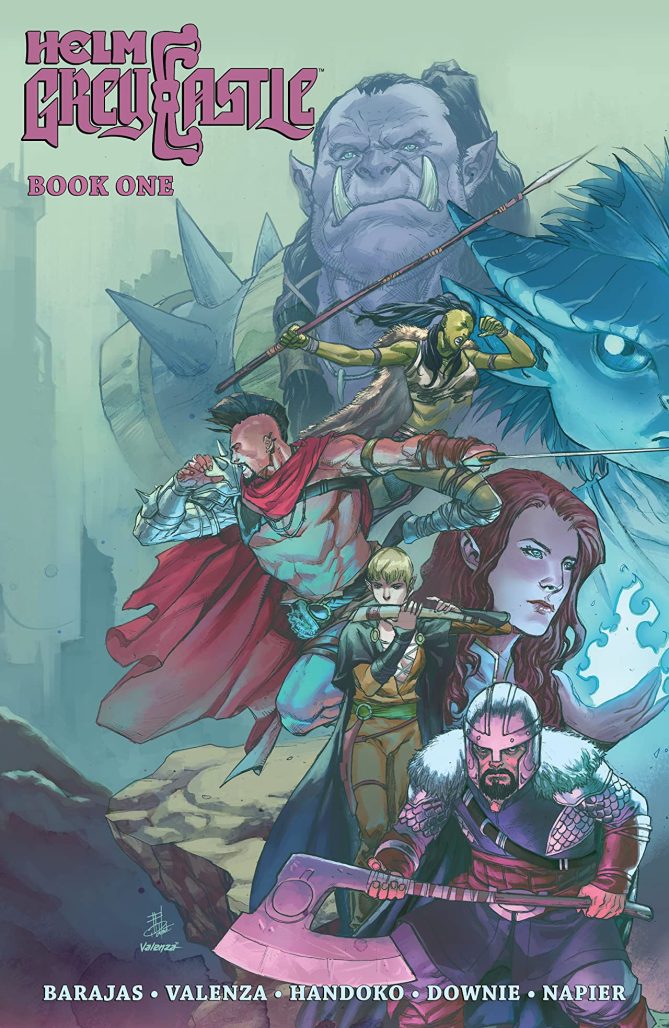
Barajas: I’m not a cheery person. I recently concluded that I’m allergic to positivity. My next project is a true-crime series and a noir/whodunnit. I love noir, and getting to mingle in these genres excites and terrifies me creatively. But with Helm Greycastle coming out last month and no looming deadlines, I’ll take this slight reprieve until the production train starts chugging along.


